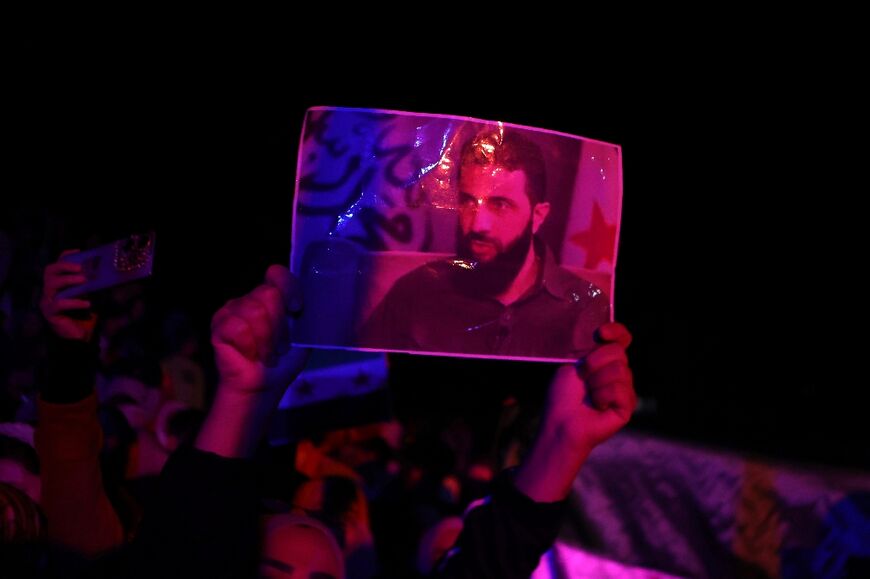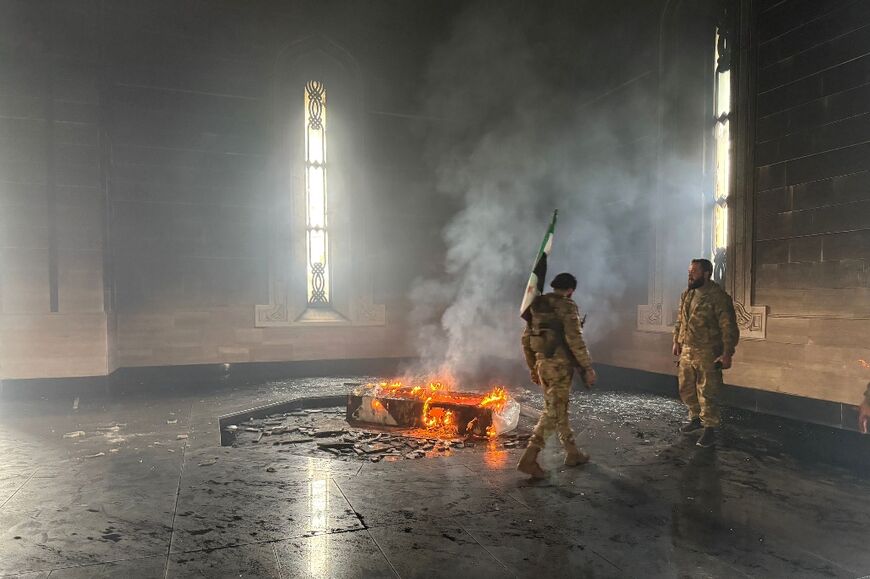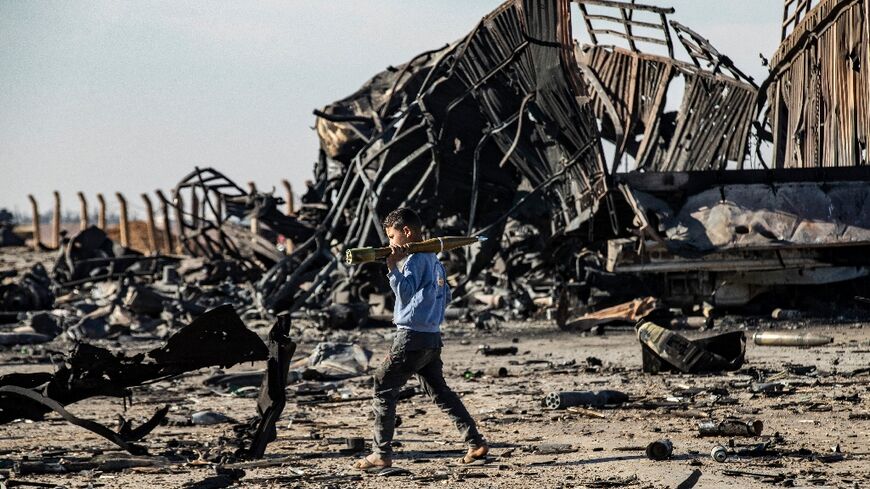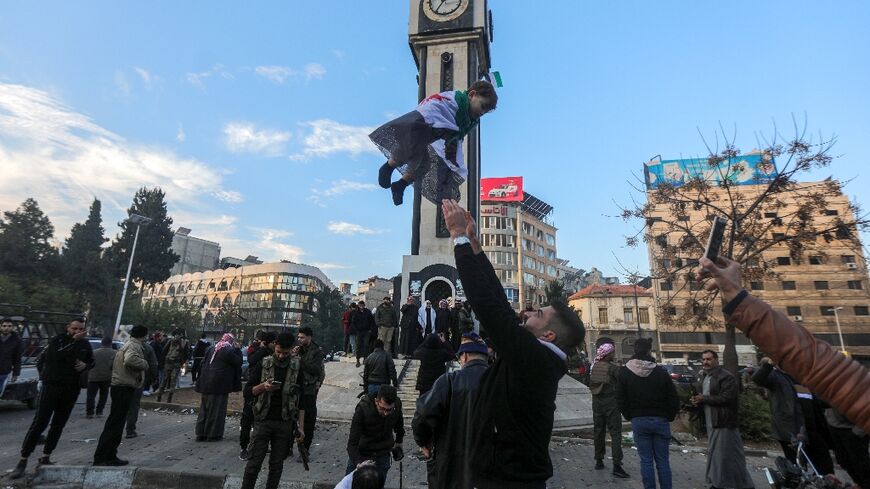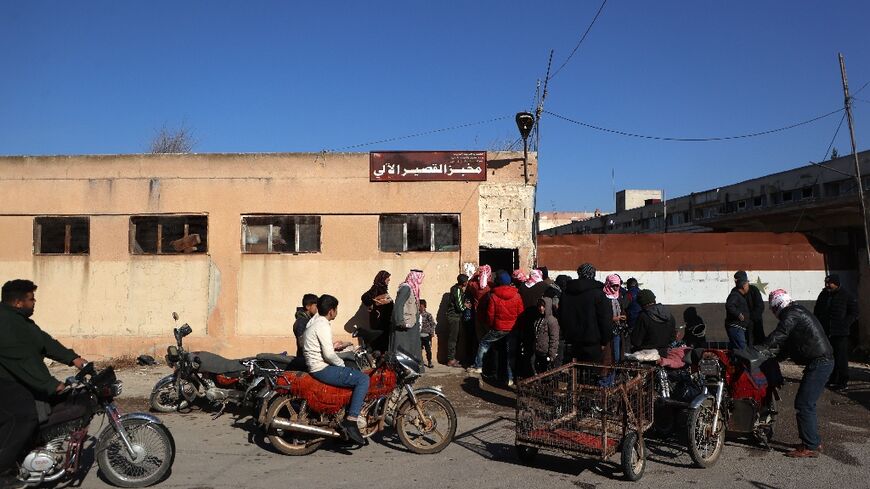New Syria PM says will 'guarantee' all religious groups' rights

Syria's new interim prime minister pledged to protect minority rights as Washington's top diplomat flew to the region on Thursday to urge an "inclusive" transition after the ouster of president Bashar al-Assad.
Assad fled Syria after a lightning offensive spearheaded by the Islamist Hayat Tahrir al-Sham (HTS) group and its allies, which brought a spectacular end to five decades of brutal rule by the Assad clan.
Syrians across the country and around the world erupted in celebration after enduring decades during which suspected dissidents were jailed or killed, and nearly 14 years of war that killed 500,000 people and displaced millions.
"We were living in oppression, we were unable to speak," Ibtissam Kaab, a resident of Assad's hometown Qardaha, told AFP.
"Whenever we wanted to speak, they threatened to harm us and our children."
The joy sparked by Assad's overthrow has been accompanied by uncertainty about the future of the multi-ethnic, multi-confessional country. Its new rulers have sought to reassure minorities they will be protected.
Sunni Muslim HTS is rooted in Syria's branch of Al-Qaeda and is proscribed as a terrorist organisation by many Western governments, though it has sought to moderate its rhetoric.
"Precisely because we are Islamic, we will guarantee the rights of all people and all sects in Syria," Mohammad al-Bashir, the transitional head of government until March 1, told Italian daily Corriere della Sera in an interview published Wednesday.
The new rulers have also pledged justice for the victims of Assad's iron-fisted rule, with HTS leader Abu Mohammed al-Jolani vowing that officials involved in torturing detainees will not be pardoned.
Jolani, now using his real name Ahmed al-Sharaa, also urged "countries to hand over any of those criminals who may have fled so they can be brought to justice".
Top US diplomat Antony Blinken is due to arrive Thursday in Jordan, his first stop on a regional tour that will see him offer US support for "an inclusive, Syrian-led transition to an accountable and representative government," State Department spokesman Matthew Miller said.
He will call for Syria to avoid becoming a "base of terrorism" or "posing a threat to its neighbours" -- a nod to the concerns of Turkey and Israel, both of which have carried out strikes inside Syria since Assad's fall.
The Syrian Observatory for Human Rights war monitor reported fresh Israeli strikes on sites belonging to Assad's military in coastal Latakia and Tartus provinces, and said Turkish drones targeted Syrian government military sites near Qamishli, in the Kurdish-controlled far northeast.
- 'Starting to feel safe' -
After decades of rule by the Assads, Syrians now face the enormous challenge of rebuilding their country and society.
In his interview with Corriere della Sera, Bashir called on the six million Syrians who sought refuge abroad to return.
"Syria is now a free country that has earned its pride and dignity. Come back," he said.
The main international airport in Damascus, closed since the rebels overran the capital, will reopen "in the next few days", its director Anis Fallouh told AFP.
And Bashir said Syria's new rulers would be willing to work with anyone so long as they did not defend Assad.
The United Nations' envoy for Syria, Geir Pedersen, urged an inclusive process, telling AFP that his "biggest concern is that the transition will create new contradictions in the manner that could lead to new civil strife".
In Aleppo, Syria's second city and the first major one captured by the rebels in their offensive, shopkeeper Ramadan Dali, 70, said that "we are starting to feel safe."
But Juman Khilaly, 40, echoed the concerns of many about basic necessities.
"Everything is so expensive," she said.
For many Syrians, Assad's fall has been a chance to exorcise the demons of decades during which torture, disappearances and summary executions became the norm.
On Wednesday, the tomb of Assad's father and predecessor Hafez was set alight, with rebel fighters in fatigues and young men watching it burn.
The Baath party of the deposed president meanwhile announced it would suspend its work "in all its forms... until further notice" and hand over assets to the authorities.
Assad was propped up by Russia, to where he reportedly fled, as well as Iran and Lebanon's Hezbollah militant group.
On Wednesday, the Kremlin said it wanted to see Syria stabilised "soon" and criticised Israel over hundreds of air strikes it conducted on its neighbour over the past few days.
For years, Russian warplanes patrolled the skies over Syria, carrying out largescale bombing in support of Assad's government.
- 'Turning point' -
Some Western governments have also cautioned against military action by foreign powers.
Germany's Foreign Minister Annalena Baerbock said Syrian "neighbours such as the Turkish and Israeli governments, which are asserting their security interests, must not jeopardise" the transition of power.
France called on Israel to withdraw troops from the buffer zone separating the annexed Golan Heights from Syrian territory, and Spain urged respect for Syria's "territorial integrity".
Assad had faced down protests and an armed rebellion for more than a decade before his fall.
The rebels launched their offensive on November 27, the same day that a ceasefire took effect in the Israel-Hezbollah war, which saw Israel inflict staggering losses on the ranks of Assad's Lebanese ally.
Qatar, which has backed Assad's opponents, said Wednesday it would reopen its embassy in Damascus "soon".
Ahead of a G7 meeting Friday at which leaders will weigh whether to support HTS, British Prime Minister Keir Starmer called Assad's departure a "turning point for Syria".
"In the past, we've always thought what comes next is necessarily better. That hasn't turned out to be the case," he cautioned.
